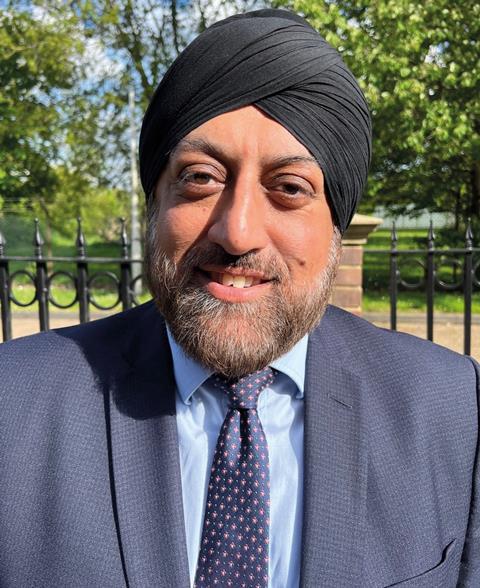Founder and senior partner of HSR Solicitors
I wanted to be a voice for the vulnerable and the discriminated. A career in law allowed my voice to be heard. Doing right in the face of adversity was my father’s credo. He was my role model. Growing up in a tough neighbourhood that did not understand (or tolerate) my Sikh culture was a constant challenge. My turban set me apart and made me a target of daily abuse. It toughened me and made me unafraid to stand up to bullying; I began to win more fights than I lost. Such experiences propelled me to always side with the underdog. This early exposure to unfairness and unequal treatment has been a driving force in my career. Attractive though the rewards of commercial law were, my destiny and path led me into criminal law.

Starting a career in law in the mid-1990s was not for the faint-hearted. My break came with an opportunity of work experience with a small firm of solicitors in Whitechapel, which I quickly converted to full-time work. But this came with a huge caveat – I was working for no pay. My employers saw my affinity with clients and that I was attracting new clients. My big break came when the firm offered me a training contract for the princely annual salary of £6,000. My weekend market stall helped me forestall financial doom. Survival was key.
As a trainee, I was thrown into the deep end every day. As I neared the end of my training contract, my new boss made it clear that my salary would not increase. I tried to persuade another disgruntled employee to set up a new firm with me as an equal partner. To my amazement, he agreed. On the day I qualified as a solicitor (3 August 1998), I became a partner in my own firm. Six years later, I became the managing partner of a growing business, with two salaried partners, a thriving criminal department, and growing conveyancing and immigration departments – and the firm bore my name.
During my training contract, I saw inequality of opportunity across the profession. I was determined to challenge it. Running my own firm was an ideal way to do so. I had helped look after my father’s shop at 12 years old and ran a market clothing stall as a teenager which helped finance my education. Entrepreneurship ran in my veins.
'It is a basic right to have good, dedicated legal representation in court. I often represent defendants who ‘look’ guilty but when the evidence emerges in the trial process, it is clear that they had been telling the truth'
My empathy for customers was rewarded with their trust and custom. I try to run my firm in the same way – to treat each client as if theirs is the only case we have. I remind myself that those charged with serious offences are at their lowest and most vulnerable – they rely upon me to steer them through their darkest hour and know that I will be with them at each step. Even though we now have many high-profile clients from all over the UK, the firm remains local, serving the east London community in which I and my staff have grown up.
I have been fortunate to be involved in some of the most interesting and difficult cases over the last 20 years. Some that stay with me include: the well-known local solicitor who murdered his wife; the victim of a false rape allegation; a nationally reported series of ‘crash for cash’ cases, which caused millions of pounds of damage to the insurance industry; numerous gang-related murders; fraud in relation to Virgin Media’s TV service; anabolic steroid cases across England and Wales; a £13m HMRC VAT fraud involving the directors of a film company; one of the key EncroChat smartphone app cases; some of the largest drugs importation and distribution cases in England; and the recent acquittal of the ‘lookouts’ in the robbery of the boxer Amir Khan.
For many years, I played an active and key role in the Society of Asian Lawyers. It was set up because the profession was rife with inequality. We simply wanted a level playing field. The Society of Asian Lawyers helped to write what is now the Law Society’s flagship document on equality. Now there is far greater equality at entry to the profession and progression further up to partnership. The next hurdles are equal access to quality work and to the judiciary. Indeed, it is a basic right to have good, dedicated legal representation in court. I often represent defendants who ‘look’ guilty but when the evidence emerges in the trial process, it is clear that they had been telling the truth. It is incumbent on defence lawyers to fight hard to ensure their voice is heard. There is much to be said for standing up for rights, in the face of adversity.
Harsharan Singh Rana (Harry Rana) is founder and senior partner of HSR Solicitors































No comments yet